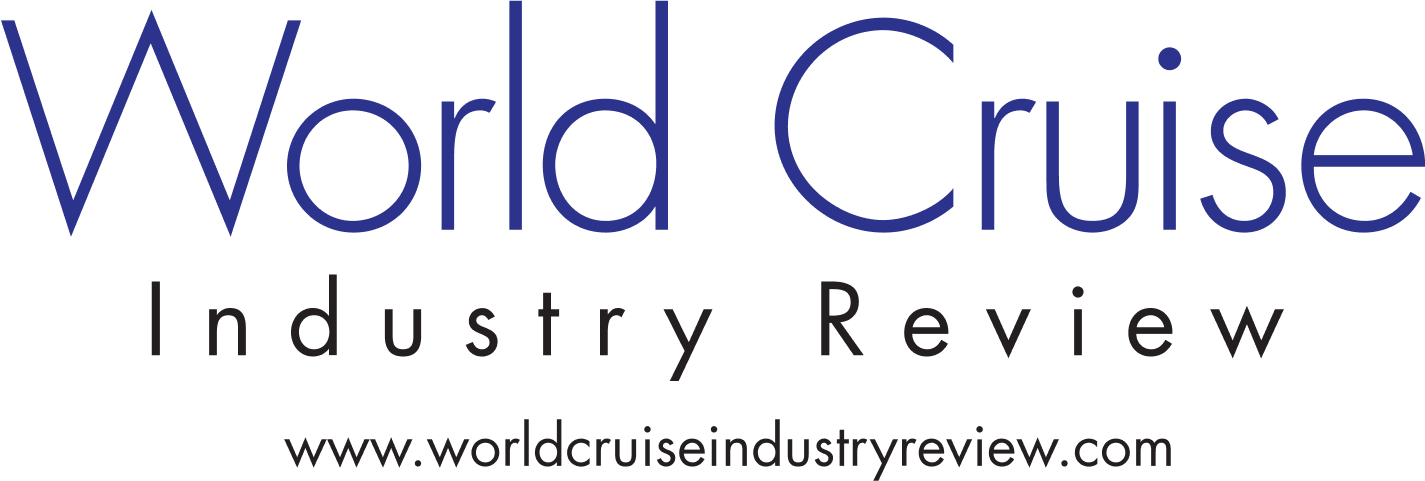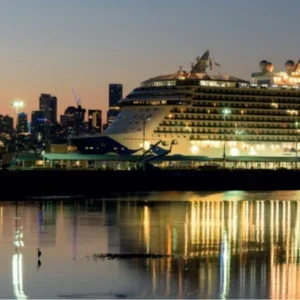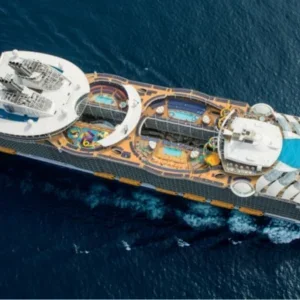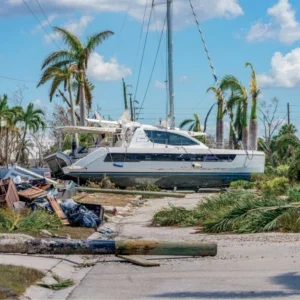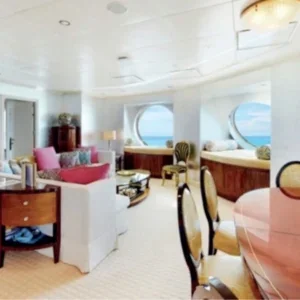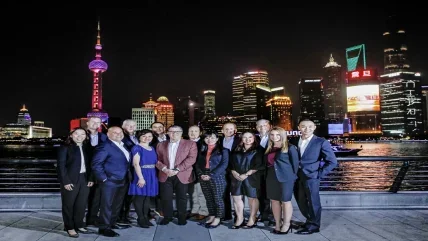
Change at the top almost invariably follows a collapse in confidence and a perceived need to chart a dramatically different course. A new leader arrives, distances the new administration from its predecessor, outlines a bold vision for the future and sets about instituting change. "There are many ways of going forward," Franklin D Roosevelt once observed, "but only one way of standing still."
When Norwegian Cruise Line Holdings announced the appointment of its own FDR in January of this year, however, the circumstances were quite different. The organisation had reported 25 consecutive quarters of growth under Kevin Sheehan, who became synonymous with the company’s success during a tenure stretching back almost eight years. The historical analogy was more Gold Rush than Great Depression.
Sheehan’s most recent accomplishment had been the $3-billion acquisition of Prestige Cruise Holdings in late 2014, universally heralded as a canny play that gained Norwegian a significant foothold in the lucrative upscale and luxury segments. Sheehan’s sudden decision to stand down took the industry by surprise, but the identity of his successor went some way towards allaying fears and avoiding panic. It could even prove to be the greatest legacy of the Prestige deal.
Inside man
"I guess it shows we can keep a secret," Frank del Rio says with a warm chuckle, as we sit down for breakfast at London’s Connaught Hotel. "The fact that I am a known quantity certainly works to our advantage. I’m not somebody from the outside who needs to introduce himself and outline his values; I’ve been in the industry a long time and people know what I stand for."
The former CEO and president of Prestige Cruise Holdings was the man sitting across the table from Sheehan when the deal to bring Prestige’s Oceania and Regent Seven Seas brands into the Norwegian family was being thrashed out. He remains tight-lipped regarding exactly when the idea of taking the helm of this expanded organisation was first suggested, but clearly relishes the opportunity to take the step up.
"This is the big league," he enthuses. "We’ve got three great brands all coming off record years, but that doesn’t mean there isn’t room for improvement: there’s still so much to do. When a CEO tells you that everything’s perfect and the top has been reached, it’s time they got out."
Del Rio is on a whistle-stop tour of the UK, meeting colleagues, investors and travel partners. It is almost exactly a month since his appointment was announced and he acknowledges that pressing the flesh and articulating his message has been a strong focus of his early tenure.
As a cruise veteran, his appointment certainly helped allay market fears regarding smoothness of succession, but there are also three established customer bases all seeking assurances that their experiences will not be affected by this new organisational structure.
"Some fear is understandable, because customers have been burned in the past," del Rio concedes. "You’ve seen other combinations where the bigger brand exerts pressure or influence on the more upscale offerings, with the result being – at least in the customer’s mind – that the upscale experience is watered down.
"There might have been some doubts following the acquisition, but, since my appointment, bookings for Oceania and Regent are up; the customers know me and trust that I’ll protect the brands. On the Norwegian side, the message we’re really trying to get across is that every effort will be made to make the product even better, but that does not mean more expensive."
Practice makes perfect
"The product" is a theme to which del Rio returns time and again, and he is insistent that enabling all parties to share knowledge will only heighten standards across the board. While serving distinct market segments, disseminating best practice is vital to the success of any fully integrated organisation.
"There are plenty of companies out there offering multiple brands where, rather than being complementary, they directly compete with one another," he explains. "You can argue about whether that’s a good or a bad thing, but in our case, we have three brands that are the absolute leaders in their specific segments.
"’Best practice’ is often little more than business jargon, but in our case, one can quickly identify where one brand is stronger than another. The roast chicken is better on board Oceania, for example, but nobody develops better guest entertainment than Norwegian.
"These are skills each party can learn from the other and replicating performance shouldn’t cost anything, either in terms of money or identity."
While del Rio speaks of tweaks rather than transformations in terms of delivery, he agrees that heading up an organisation with almost 2,600 employees shoreside and 30,000 at sea will require some fundamental changes in his leadership style. A few days before our meeting, he revealed a number of executive appointments: Bob Binder, president of international operations; Howard Sherman, EVP of revenue management; Robin Lindsay, EVP of vessel operations; Victor Gonzalez, EVP of supply chain and logistics management and Harry Sommer, senior vice-president and chief integration officer. All boast experience at Prestige on their CVs and will report directly to the CEO.
Managing expectations
Of the other direct reports, Drew Madsen remains president, and chief operating officer of Norwegian Cruise Line and Jason Montague as president and chief operating officer of Oceania Cruises and Regent Seven Seas Cruises. Wendy Beck has also retained her role as EVP and chief financial officer.
"Management is as much an art as a science," claims del Rio. "You lead by example, but you can’t manage every employee individually. I believe in a flat, lean structure. I’d rather have fewer people, highly compensated, with broad responsibilities and the authority to execute those responsibilities. Management sometimes fails in not allowing people to make decisions further down the line. It’s a question of trust.
"Good products produce the yield, and yield forms the backbone of earnings per share, which in turn drives all the other good things investors look for. You can’t have optimum earnings per share purely on the back of yield, though; you must be cost-controlled. My direct reports clearly set out that logic. Each individual has broad responsibility for a fundamental building block of our success and lead teams that share the same vision."
Savings are perhaps the less glamorous element of the equation, but the numbers are startling. When the Prestige deal was first announced, Sheehan promised investors "cost synergies" of $25 million in the first year. That number has recently been revised up to $40 million, with $50 million to follow in 2016.
"Any idiot can cut costs to the point where it’s obvious to the customer, but that would amount to total failure on our part," the CEO explains. "It’s about finding those nuggets, exploiting them and taking advantage of scale. We’re already seeing big synergies in purchasing, shore excursions, port fees and insurance. Some things might take longer than others; anything that involves computers tends to involve long lead times.
"We have a target date of late June for migrating everything to the Norwegian accounting system, and it will take many more months to complete the crossover of other ancillary systems, but the momentum is already there."
You can be sure that del Rio’s peers in the industry will be keeping a close eye on developments. He seems genuinely touched that MSC Cruises’ Pierfrancesco Vago and members of the Royal Caribbean leadership team were among the first to congratulate him on his new appointment, and believes there are areas in which industry leaders can work together for the collective good.
"We’re fierce competitors; put us all in a room together and we wouldn’t even be able to agree on where to have lunch," he says, clearly relishing the competition. "But some challenges are definitely better met as allies, rather than competitors. We’re currently working with two other lines on joint port development, and CLIA has done a great job consolidating different voices and advocating for the industry as one."
New destinations and increasing the global footprint is where del Rio sees the most ‘low-hanging fruit’. Upheaval in the eastern Mediterranean continues to disrupt development of what was for many years seen as the next big thing in international cruising and Norwegian has been less gung-ho about China than some of its competitors.
The real excitement comes as our conversation turns to the Caribbean, and December’s move to normalise relations between the US and Cuba, the island del Rio fled with his family as a small child.
Cuba and beyond
"Nearly 40% of ships visit the Caribbean but they can’t go to its largest island, closest to the US, with all the attributes to be the ultimate destination," he enthuses. "Today, the embargo is still intact, but we hope discussions will be successful, then you’ll see a real rush to market.
"As for me, I left when I was seven. Returning to my homeland, for the first time, on the bridge of one of my own ships would be quite the homecoming."
One feels that wherever Norwegian and del Rio’s journey takes them, standing still will not form part of the itinerary.
